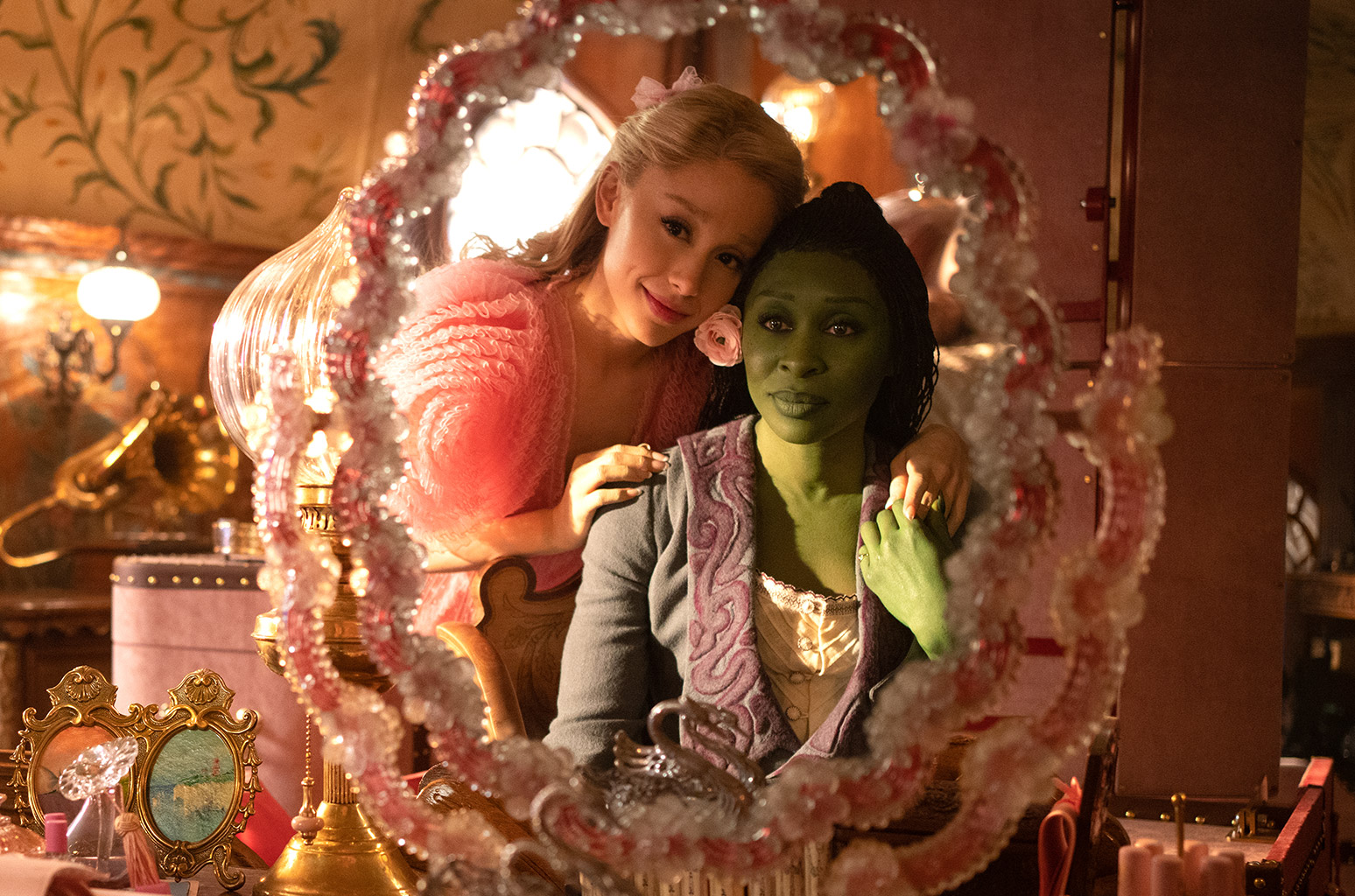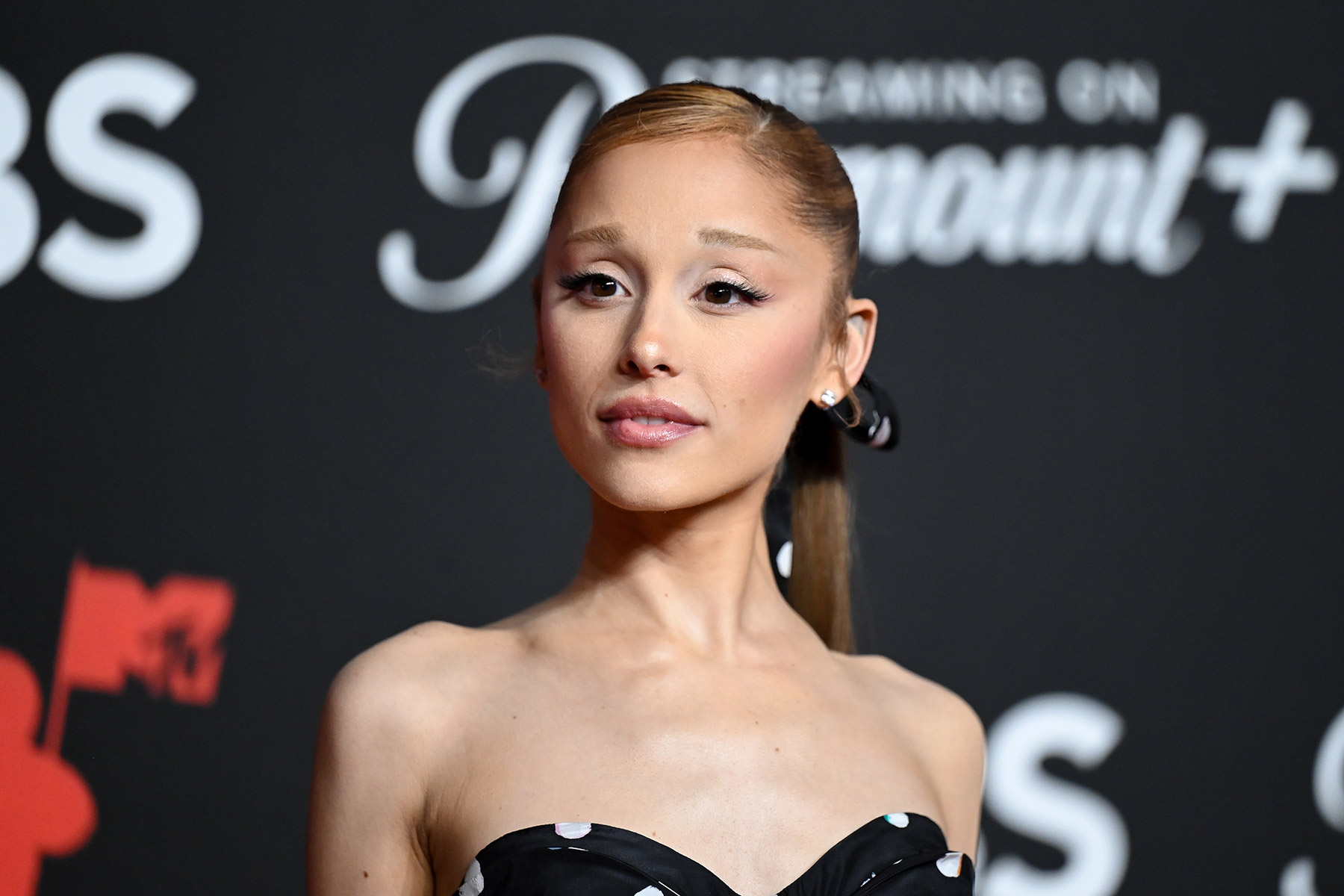Entertainment
Spotify CEO Daniel Ek Will Play a Major Role in AI’s Future in Audio. So What Has He Said About It?
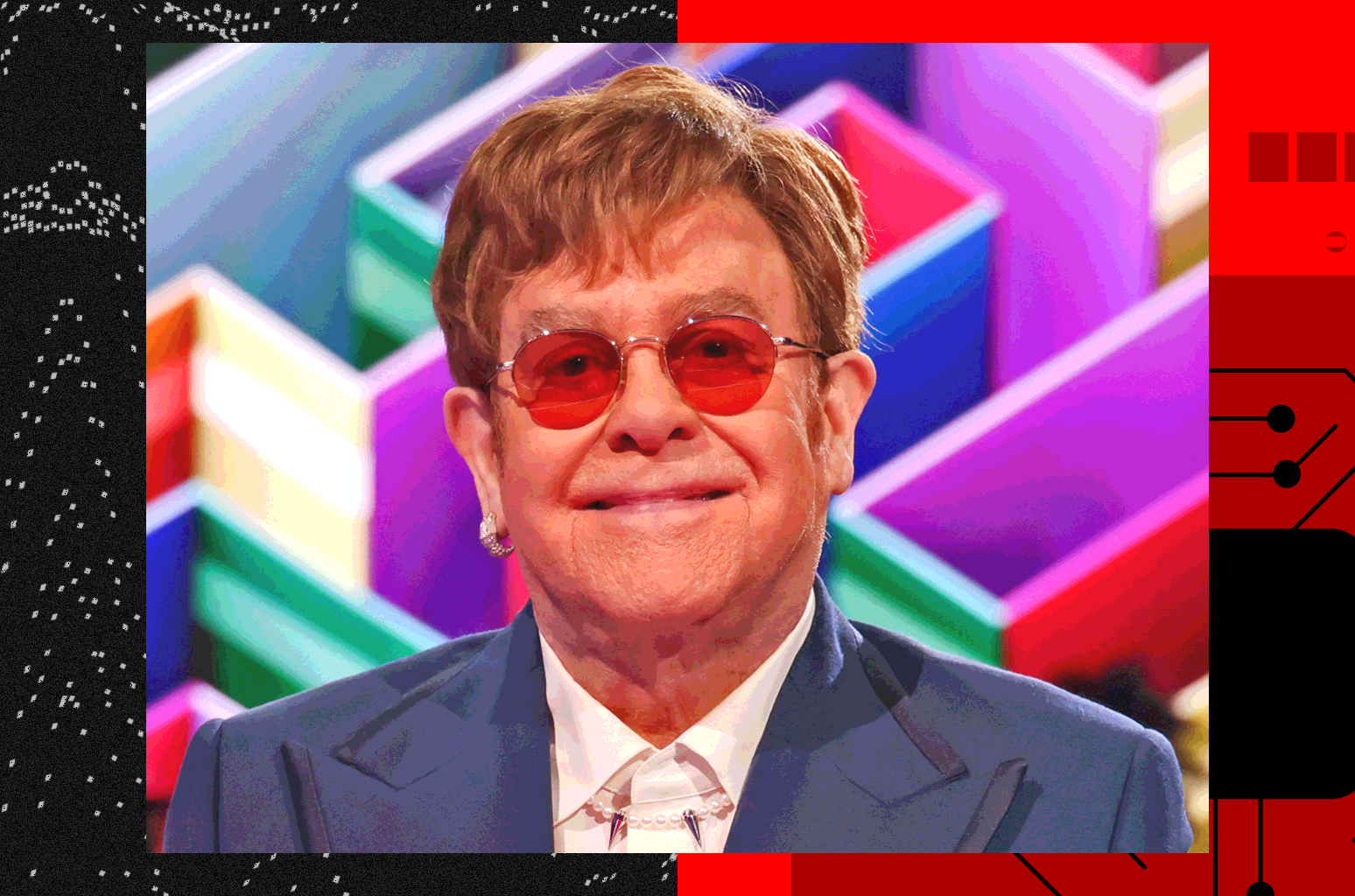
Given the enormous stakes at play, when business leaders talk about AI, people listen.
In May, Dario Amodei, CEO of AI firm Anthropic — who stands to personally benefit from companies’ widespread adoption of his technology — gained widespread attention after he predicted that AI will wipe out half of all entry-level jobs within five years. And in music, Sony Music CEO Rob Stringer, in an annual presentation to investors, said the company is “going to do deals for new music AI products this year” and that it has “actively engaged with more than 800 companies” on various AI-related initiatives.
Perhaps most notable, at least on the music front, are the comments made about AI in various interviews given by Spotify CEO Daniel Ek in recent years. In them, he’s provided insights into how Spotify, the most valuable and important music platform in the world, approaches the technology. Ek’s comments carry weight: While generative AI platforms such as Suno and Udio have stirred the greatest amount of fear over AI’s ability to undermine human creativity, the largest music platforms will play a huge role in how both creators and listeners engage with it.
Understanding Spotify’s approach to AI doesn’t always require reading tea leaves. Some of its products that use AI are out in the open. For example, in 2023, the company launched two major products that utilize the technology: a personalized AI-powered DJ and a voice translation tool for podcasters that can translate recordings into other languages.
Still, given that the company’s attitudes and approaches to AI will affect Spotify’s 678 million monthly users and millions of creators, it’s worth examining Ek’s statements to see how Spotify intends to incorporate AI, embrace opportunities and address concerns. To that end, this author examined 10 podcast interviews, numerous online articles and a 2024 open letter Ek penned with Meta CEO Mark Zuckerberg to get a better sense of how he views the technology.
The one aspect about AI that Ek has talked about most often is its ability to help Spotify deliver to listeners the right audio — whether it’s music, a podcast or an audiobook — at a particular moment. He has described a mismatch between supply and demand, and how using new innovations can help better connect listeners and creators. Right now, Spotify users can search and find what they want 30% to 40% of the time, Ek told the New York Post in May, adding that he believes AI can improve that number. “So, we still have some ways to go before we’re at that point where we can just serve you that magical thing that you didn’t even know that you liked better than you can do yourself,” he explained.
Most germane to people reading this article, the interviews show that Ek has consistently voiced a respect for creators and a belief that AI should enhance creativity, not replace it. That may not reassure songwriters who are receiving fewer royalties after Spotify adopted a lower royalty rate afforded to bundles in the U.S. Ek’s stated respect for artists also contrasts with the criticism Spotify has attracted — as detailed in the book Mood Machine and news reports — for paying flat fees for music tagged with fake artist names and inserted into playlists in order to reduce its royalty obligations. (Spotify denied claims that it’s created fake artists.) But in his public comments, Ek’s support for creators doesn’t waver, and there’s no indication that Spotify will follow in the footsteps of Tencent Music Entertainment, which offers music-making generative AI tools — it incorporates Chinese AI company DeepSeek’s large language model — and allows users to upload the resulting songs to its QQ Music platform.
But AI can aid the creative process without stepping on creators’ rights, and Ek has talked with excitement about how AI tools can help lower barriers to entry and help musicians bring their visions to life. Although making music no longer requires learning and mastering an instrument, there’s still some technical know-how involved in producing music on digital audio workstations (DAWs). AI tools can reduce the complexity of DAWs and increase creators’ productivity. “We’re most likely going to have another order of magnitude of simplicity,” Ek said on the Acquired podcast in 2023.
At the same time, Ek admits there are some frightening potential applications for AI. In 2023, he told CBS Morning that AI can make experiences in every field “better and easier,” while admitting that the notion that AI will be smarter than any human is “daunting to think about what the consequences might be for humanity.” And despite the potential for AI to unleash untold amounts of creativity, Ek admits that the ultimate outcome for creators is difficult to ascertain. “We want real humans to make it as artists and creators, but what is creativity in the future with AI? I don’t know,” he said in May at an open house at Spotify’s Stockholm headquarters, according to AFP.
Just as lawmakers and music industry groups are pushing for legislation to protect artists’ names and likenesses, Ek has revealed concern about AI’s ability to replicate a musician’s voice. “Imagine if someone walked around claiming to be you, saying things that you’ve never said,” he told Jules Terpak in 2024. Spotify wouldn’t allow it on the platform without the artist’s permission, Ek said, citing Grimes — who launched a project in 2023 allowing fans to replicate her voice to use in their songs and evenly split the royalties — as an example of permissible use of an AI-generated name and likeness. “Of course, we will let her experiment, because she’s fine with it,” Ek said.
Now that Spotify is in the audiobook business, the company’s use of AI will impact a wider swath of creators than just musicians. As Ek told The New York Post, Spotify “can play a role” in getting more books converted into audiobooks using AI — specifically smaller authors who can’t afford the expense of hiring someone to read them. Such affordable text-to-voice tools already exist and are offered to authors who would otherwise be locked out of the audiobook market. It makes sense: Just as Spotify was built on providing listeners the long tail of music, it doesn’t want its audiobook selection to be limited to major titles. If Spotify builds or buys such a tool, it could vastly increase the number of audiobooks available to its listeners.
In the interview with CBS Morning, Ek quoted Microsoft co-founder Bill Gates to explain how he finds inspiration in innovation. “He says that the future is already here,” Ek said during the 40-minute talk. “It’s just not evenly distributed.” What Ek means is that he looks around the world, sees what others are doing with technology and then considers how he can bring those innovations to a wider audience. And as the CEO of the world’s largest and most influential audio streaming service, how he chooses to approach AI will go a long way in determining — for better or worse — how millions of people create, consume and profit from music, podcasts and audiobooks in the future.
Entertainment
No ‘Good’ Deed Goes Unpunished for Ariana Grande’s Glinda in Final ‘Wicked: For Good’ Trailer
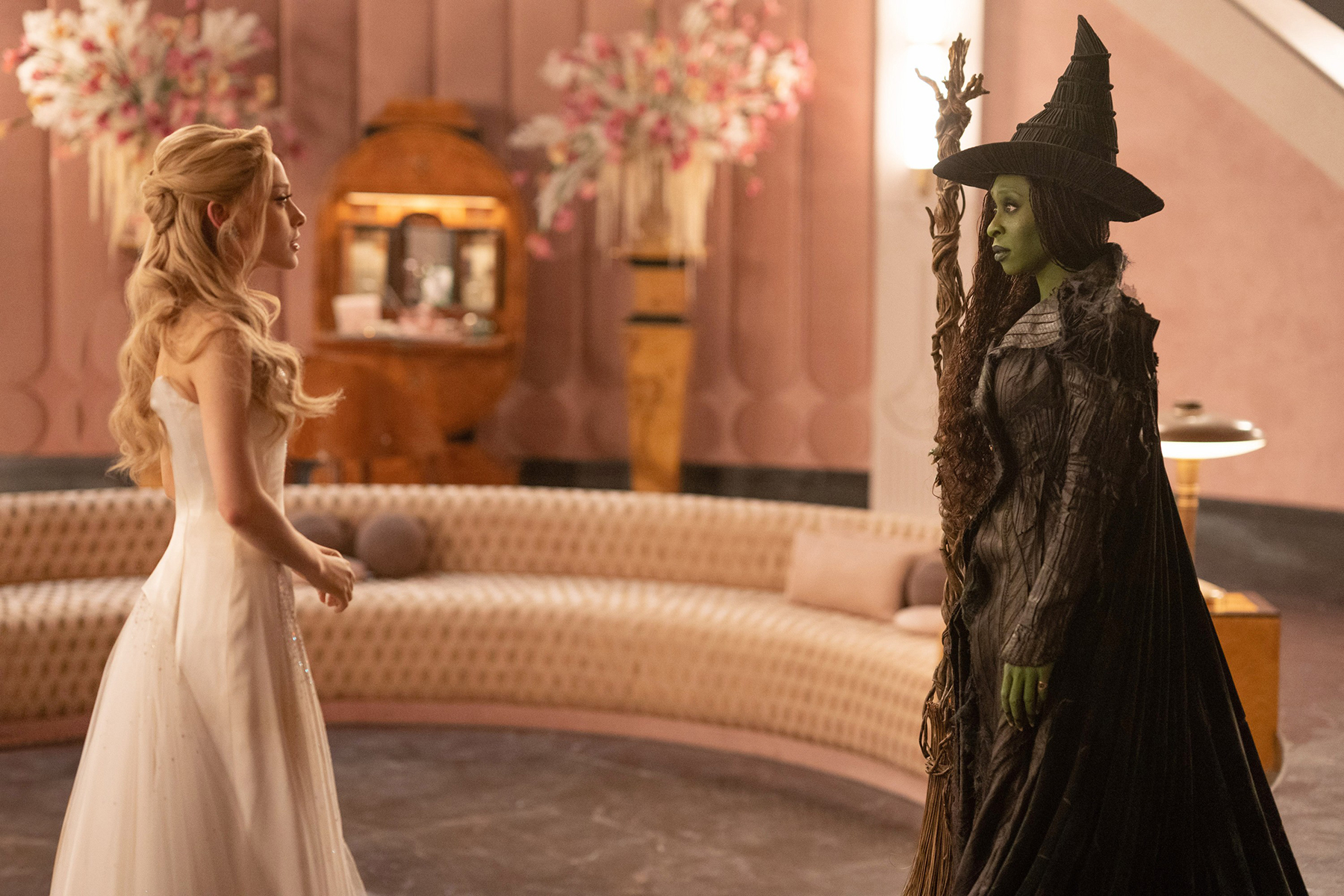
In the final trailer for Wicked: For Good, Ariana Grande‘s character learns that a big price comes with being Glinda the Good.
Released on Wednesday (Sept. 24) — about two months before the Wicked sequel finally premieres in theaters on Nov. 21 — the preview shows how the blonde leading lady wrestles with her new role as Oz’s spokeswoman, as Cynthia Erivo‘s Elphaba attempts to expose the Wizard’s evil agenda while living in hiding. At first, Glinda is “obsess-ulated” with the gorgeous gown, tiara and mechanical flying bubble her public-facing life affords her — but everything quickly comes crashing down when she realizes that she’s on the wrong side of history, and that she just might be too late to save her former schoolmate from the wrath of Oz’s brainwashed citizens.
“I’m a public figure now, people expect me to …,” Glinda tells Elphaba at one point, with Dorothy’s fallen house and the Yellow Brick Road visible in the background.
“Lie?” the green-skinned witch cuts in, to which Glinda says defensively, “Be encouraging.”
Grande’s character is less sure of herself when she is confronted by Jonathan Bailey’s Fiyero, who accuses, “You can’t resist this.”
“Who could?” Glinda asks, to which the Winkie prince replies, “You know who could.”
Arriving one year after the first Wicked hit theaters and shattered movie-musical box-office records, For Good will serve as the film adaptation of the second act of the Broadway musical on which the live-actions are based. The soundtrack will also drop on Nov. 21, complete with two brand new songs sung by Grande and Erivo.
As revealed when the tracklist dropped a week prior to the new trailer, the title of Glinda’s bonus song is “The Girl in the Bubble,” while Elphaba’s added balled is called “No Place Like Home.”
Watch the final trailer for Wicked: For Good above.
Entertainment
Priscilla Presley Says That Leaving Elvis Presley Was ‘The Only Way to Survive’ in New Memoir ‘Softly, As I Leave You: Life After Elvis’
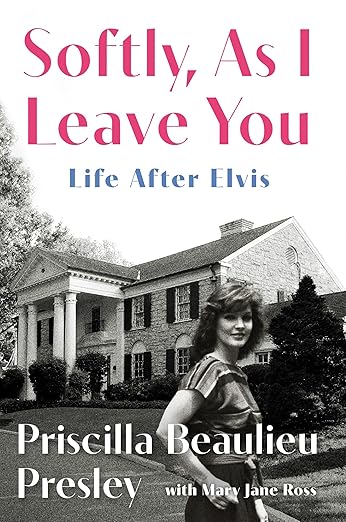
All products and services featured are independently chosen by editors. However, Billboard may receive a commission on orders placed through its retail links, and the retailer may receive certain auditable data for accounting purposes.
Priscilla Presley was with Elvis Presley for around 14 years before they split; however, the pair had known each other for years before they wed in 1967.
The time in between and following Priscilla and Elvis’ divorce was a tough spot for Priscilla, and one she wasn’t super open about — that is, until now. In her new memoir Softly, As I Leave You: Life After Elvis, the actress shares the difficult but inspiring journey beyond the walls of Graceland post-split with the King, choosing to put herself and her daughter, Lisa Marie Presley, first.
A hardcover version of the book is now on sale and can be purchased now on Amazon for $22.38, while paperback will run you $32. A Kindle version retails for $15.99. If you’re a superfan of Priscilla and the Presley family, you can also snag a signed version of the memoir via Barnes & Noble for $32. The piece makes a great gift for the avid Elvis collector in your life. If you’d rather listen to the memoir, we won’t judge, you can do so with Audible via a subscription which costs $7.95 a month, a price tag less than a physical copy.
Softly, As I Leave You: Life After Elvis
A new memoir by Priscilla Presley.
If you didn’t know, Priscilla met Elvis when she was just 14 and he was 24. The singer was serving in the U.S. Army in 1959 in Germany. The pair remained romantically connected for years, even with distance between them and in 1967, they were wed in a simple and very secret ceremony in Las Vegas. While their separation in 1973 was painful for Priscilla, this novel highlights why it was so important for the Naked Gun star to leave.
It seems that Priscilla lost touch with herself throughout her relationship with Elvis. Leaving allowed her to find herself again. Through the book, we are treated to snippets of Priscilla’s life pre- and post-Elvis and how she had to reinvent herself a second time as the single mother after the performer’s death in 1977.
Today, we are taken through how Priscilla was able to transform Graceland into an international destination and helped guide the development of Elvis Presley Enterprises, turning the King’s legacy into a full-on business. If you are an Elvis fan, this gives readers a unique perspective on his life, as told by his ex-wife. It also gives Priscilla’s story more context for those who aren’t too familiar with her life and career.
Entertainment
Calvin Harris’ Ex-Business Manager Denies $22M Fraud Claims: ‘Categorically False’

Calvin Harris‘ former longtime business manager is firing back against bombshell fraud claims, saying he never stole from anybody and that the Scottish DJ willingly agreed to invest in his Los Angeles real estate development project.
Thomas St. John, an entertainment industry-focused accountant who runs the eponymous firm Thomas St. John Group, is currently wrapped up in thorny arbitration proceedings with his former client Harris (Adam Wiles). He’s accused of abusing his access to Harris’ accounts in order to fund his side venture: the construction of a recording studio and office space complex in Hollywood.
Harris claims that St. John tricked him into investing $22.5 million in the project, known as CMNTY Culture Campus, which he says turned out to be a “complete boondoggle” that he “has not received a single penny in return for” — while suggesting that St. John pocketed much of the money for himself.
However, a representative for St. John says in a new statement that the allegations are “categorically false.” The rep denies that St. John engaged in any self-dealing, adding that Harris is one of nine above-board investors who “knowingly signed investment agreements” to get involved in CMNTY Culture.
“Not a single dollar has been misappropriated, all investor entitlements remain intact, and the project continues to advance within the normal entitlement timeline,” says St. John’s rep in the Tuesday (Sept. 23) statement. “We will continue to take every necessary step to set the record straight and to ensure that these malicious, bad-faith attacks are recognized for what they are: entirely without merit.”
While CMNTY Culture was initially designed to house a recording studio and office space, St. John has since shifted the plans and is now developing a residential apartment complex on the same tract of land in Hollywood. According to his rep, the project is proceeding apace and “is expected to approach a $1 billion valuation” upon completion.
“While the entitlement process has naturally taken longer than initially projected due to unprecedented interest, macroeconomic conditions and significant city red tape, it remains firmly within its promised schedule and is now on the verge of securing final entitlements, an important milestone that will unlock substantial value,” adds St. John’s rep.
Thomas St. John Group has offices in Los Angeles, London, Amsterdam and Stockholm. The management firm’s U.S. arm recently filed for bankruptcy, citing hundreds of thousands of dollars in unpaid rent in L.A. and multiple pending legal actions.
One creditor listed in the firm’s bankruptcy papers is Philip Lawrence, a songwriter and producer who made his name collaborating with Bruno Mars. Lawrence used to be a client of St. John’s and at one point invested $10 million from the sale of his catalog into CMNTY Culture Campus, according to court filings in Lawrence’s own personal bankruptcy case.
-

 Entertainment6 months ago
Entertainment6 months agoNew Kid and Family Movies in 2025: Calendar of Release Dates (Updating)
-

 Entertainment3 months ago
Entertainment3 months agoBrooklyn Mirage Has Been Quietly Co-Managed by Hedge Fund Manager Axar Capital Amid Reopening Drama
-
Tech6 months ago
The best sexting apps in 2025
-

 Entertainment5 months ago
Entertainment5 months agoKid and Family TV Shows in 2025: New Series & Season Premiere Dates (Updating)
-

 Tech7 months ago
Tech7 months agoEvery potential TikTok buyer we know about
-
Tech7 months ago
iOS 18.4 developer beta released — heres what you can expect
-

 Tech7 months ago
Tech7 months agoAre You an RSSMasher?
-

 Politics7 months ago
Politics7 months agoDOGE-ing toward the best Department of Defense ever


